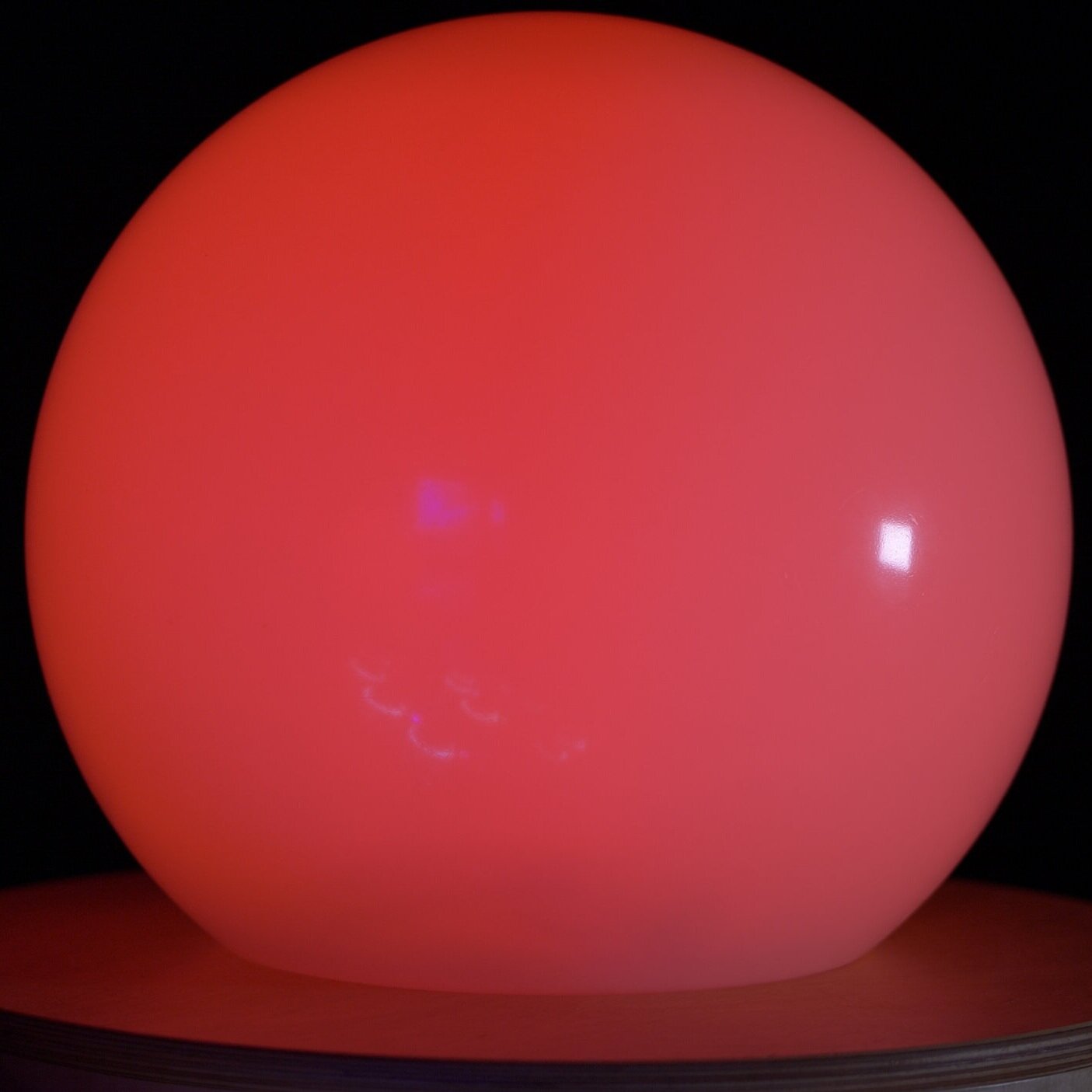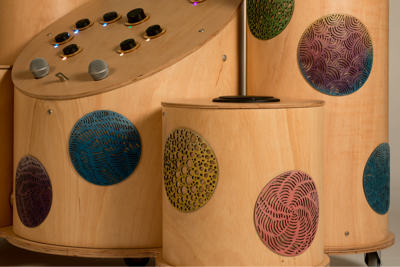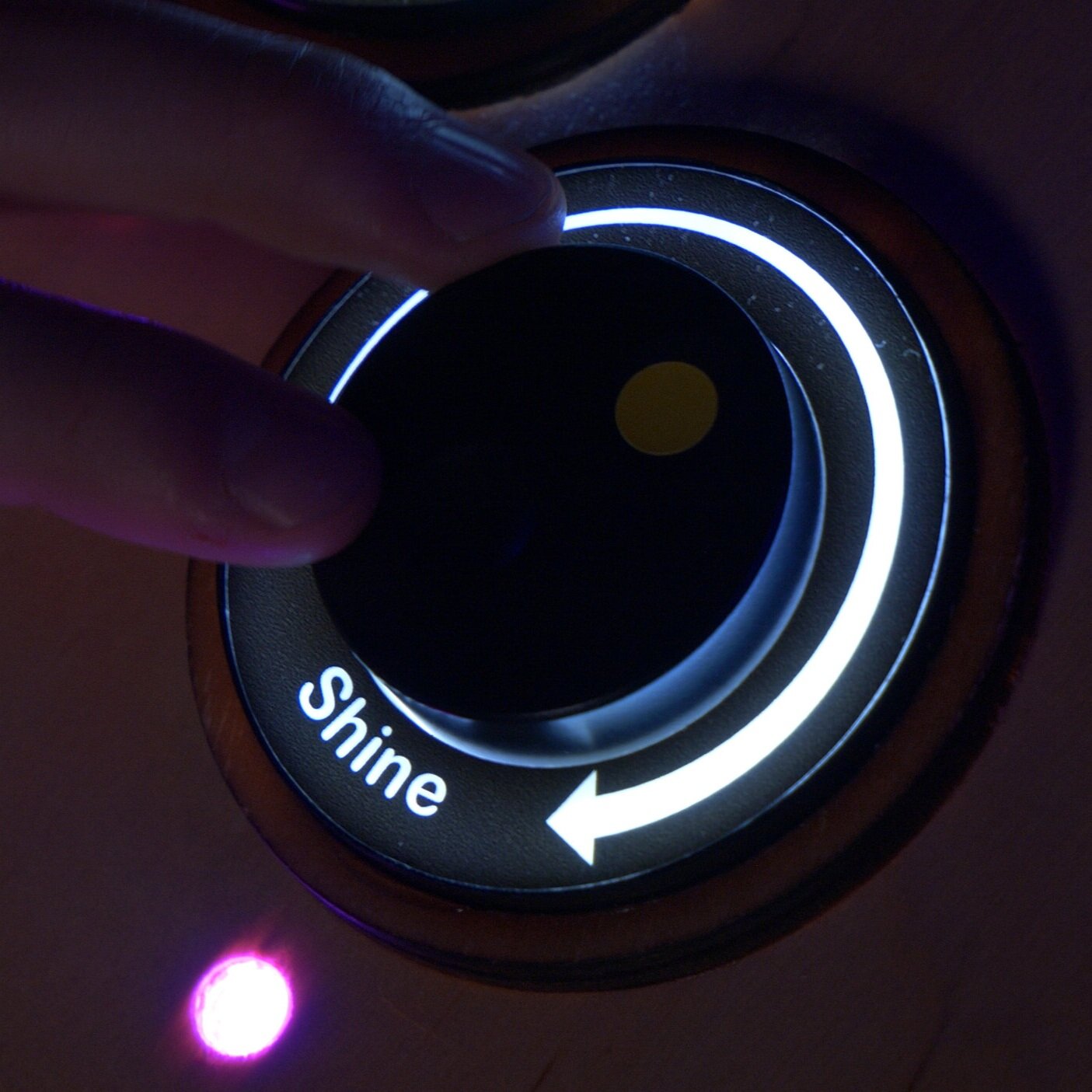Resonant Tails
Develops and delivers mobile, voice-art-making environments to children and young adults with complex disability, alongside educational support to staff to get the best use from the artwork. In 2019-20, Resonant Tails expanded to pilot the artwork in three further schools, thanks to crucial support from the National Foundation for Youth Music and Postcode Community Trust. Watch our trailer below, and follow the buttons for further detail.
WHAT IS RESONANT TAILS?
It is an artwork, a console, a voice-machine, designed for young artists with profound and multiple learning disabilities (PMLD). It is a touch interface. It captures the voices of the people who use it, and it echoes them back. It echoes them back in sound, and also in light, and also in vibration, which comes through the extendable orbs. It echoes them back with effects that make the echoes ever more interesting. People using it to hear themselves, and then become ever more playful with their sounds. The artwork makes them co-creators, and they slowly create soundscapes - landscapes of beautiful vocal sound, light and vibration-touch that they compose. Resonant Tails is a space of invention.
We developed this artwork after improvising with children with PMLD at Rosewood Free School in Southampton, who helped us conceive, refine and improve it. It is now being used in three more schools in England (links), and we are developing a support package to schools to make the most of Resonant Tails.
The name ‘Resonant Tails’ is inspired by the spacious, beautiful echoing landscapes many children produce with it - long, echoing tails of sound that fade slowly into silence and then burst forth again.
WHO IS IT FOR?
It was designed with the input of, and for, children and young adults with Profound and Multiple Learning Disabilities.
Why does it matter?
Children with PMLD have few chances to be creative with their voices on a regular basis. Their complex needs mean it can be difficult for them to visit art and performance venues. And, the more they voice, the more we know about their likes, dislikes and personalities. Voicing enables them to have experiences of sophisticated co-creation of vocal art inside their daily environments. Schools use Resonant Tails to enhance learning in communication, listening, and musicality.
How Does it work?
Supporting Vocal Intensive Interaction
Intensive Interaction is the practice of using enhanced vocal, body language-based and physical cues to engage people with disability in powerful learning relationships and relational contact. Intensive Interaction helps them know that their feelings and needs matter and helps us learn more about who they are and what they need in a person-centered environment. As part of our support to the process of intensive interaction that can help generate vocal creativity, we are developing Improvisation Expert Training to help people with less vocal skill to echo their learners’ voices and to stimulate their vocal creativity.
Improvisation Training
We are experts in how to improvise and be playful and creative using unusual vocal sound. We don’t need words or songs in order to respond to the people we work with. For us, any sound is material that can be echoed, and copied, and made beautiful. We don’t need a ‘beat’ - we work with non-punctate, or beat-less musical time. We don’t need words or melodies - we work with sounds ranging from breath and gentle snorting right through to loud vocalisations. While we are not experts in PMLD or other complex disability per se, what we are good at is getting inside the vocal worlds of people who might not have full command of speech or song. We then entice them to play with the sounds they do have, and to use their creative power to enjoy them. And, we can teach you how to do this too!
Though we are particularly skilled at this kind of improvisation, anyone can learn to do it. There are technical pointers, easy-to-learn tricks, and just helping to reduce the shyness of echoing your learner’s or family member’s sound to help them get creative. We can teach you about vocal self-care and vocal play so that you don’t get too tired.
Funders: THANK YOU!
The first phase of Resonant Tails was funded by Arts Council England Grants for the Arts and the University of Winchester. During that phase we ‘road tested’ a first version of Resonant Tails. After that, Youth Music and Postcode Community Trust, with the University of Winchester and the Contributing Schools themselves, came together to bring an improved Resonant Tails to three more schools, while we launch and further develop in-school support programmes to the use of the work.
Arts Council England Grants for the Arts (R+D, phase 1)
National Foundation for Youth Music (phase 2, three more schools)
Postcode Community Trust (phase 2, three more schools)
The Three Schools (phase 2, three more schools, links above)
University of Winchester (phase 1 and 2)
University College Cork (phase 2)










